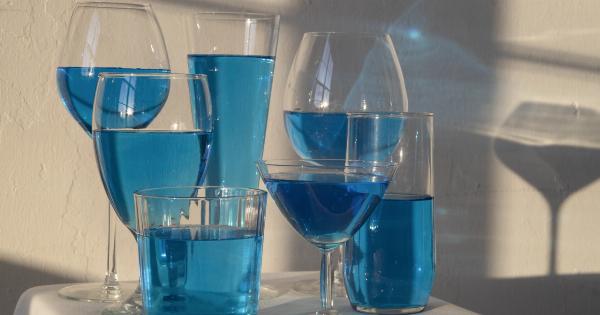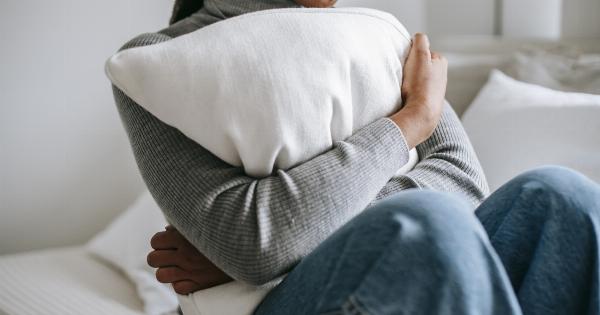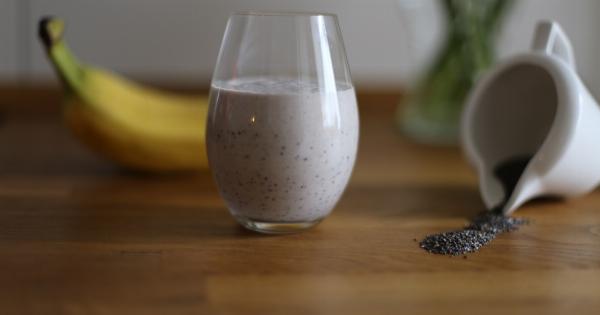Alcohol has played a prominent role in human societies for centuries. It is enjoyed by many as a means of relaxation and socializing. However, throughout history, various myths and misconceptions about alcohol have emerged.
In this article, we will debunk some of the most intoxicating myths about alcohol.
Myth 1: Alcohol warms you up
Many people believe that consuming alcohol can warm up the body, particularly in cold weather. While alcohol may create a temporary warm sensation, it actually causes blood vessels to dilate, leading to increased heat loss from the body.
This can make you more susceptible to hypothermia in cold conditions.
Myth 2: Alcohol kills brain cells
One of the most common myths about alcohol is that it kills brain cells. While excessive alcohol consumption can certainly have detrimental effects on brain health, it does not directly kill brain cells.
However, it can damage or shrink them, leading to cognitive impairments and other neurological problems.
Myth 3: Drinking coffee or caffeine can sober you up
Contrary to popular belief, consuming coffee, energy drinks, or other caffeinated beverages does not sober you up. It only makes you feel more awake and alert temporarily.
The effects of alcohol on your system remain unchanged, and impaired judgment and coordination persist until the alcohol is metabolized by the liver over time.
Myth 4: Clear alcoholic beverages are less intoxicating than dark ones
Many people erroneously believe that clear alcoholic beverages like vodka or gin are less intoxicating than darker ones like whiskey or rum. In reality, the level of intoxication primarily depends on the alcohol content, irrespective of its color.
The amount and rate of consumption are the crucial factors that determine the level of intoxication.
Myth 5: Eating before drinking prevents intoxication
While eating before drinking can slow down the absorption of alcohol into the bloodstream, it does not prevent intoxication. Food in the stomach may delay the rate at which alcohol enters the bloodstream, but it does not eliminate its effects.
Intoxication is determined by the amount and rate of alcohol consumption, not by whether you’ve eaten prior.
Myth 6: Alcohol has medicinal benefits
While small amounts of certain alcoholic beverages like red wine may contain antioxidants that offer health benefits, it is important to note that the risks associated with alcohol consumption often outweigh these potential advantages.
The negative impacts on physical and mental health, as well as the risk of addiction, far outweigh any potential medicinal benefits.
Myth 7: A nightcap helps you sleep better
Many individuals believe that having a nightcap, such as a glass of alcohol before bed, can improve sleep quality. While alcohol can make you feel drowsy and help you fall asleep quicker, it disrupts the quality of your sleep.
It impairs REM sleep, which is crucial for proper rest and rejuvenation, resulting in less restful sleep overall.
Myth 8: Mixing different types of alcohol makes you more drunk
Some people hold the belief that mixing different types of alcohol, such as beer, wine, and spirits, will result in increased intoxication.
However, the alcohol content remains the determining factor in how drunk you become, regardless of the types of alcoholic beverages consumed. Mixing different types may lead to other issues like upset stomach or quicker intoxication due to faster absorption.
Myth 9: Alcohol is a good stress reliever
While alcohol may create a temporary feeling of relaxation, it is not an effective long-term stress reliever. In fact, it can contribute to increased levels of stress and anxiety over time.
Relying on alcohol to cope with stress can lead to dependence and further exacerbate mental health issues.
Myth 10: Alcohol kills germs
Some individuals believe that consuming alcoholic beverages can kill germs within the body. While alcohol does possess antiseptic properties, its concentration in most alcoholic beverages is not sufficient to effectively kill germs within the body.
In fact, excessive alcohol consumption weakens the immune system, making you more susceptible to infections and illness.





























